For Those Left Behind
In which Norm reviews AFTERSUN and THE BANSHEES OF INISHERIN, for reasons.
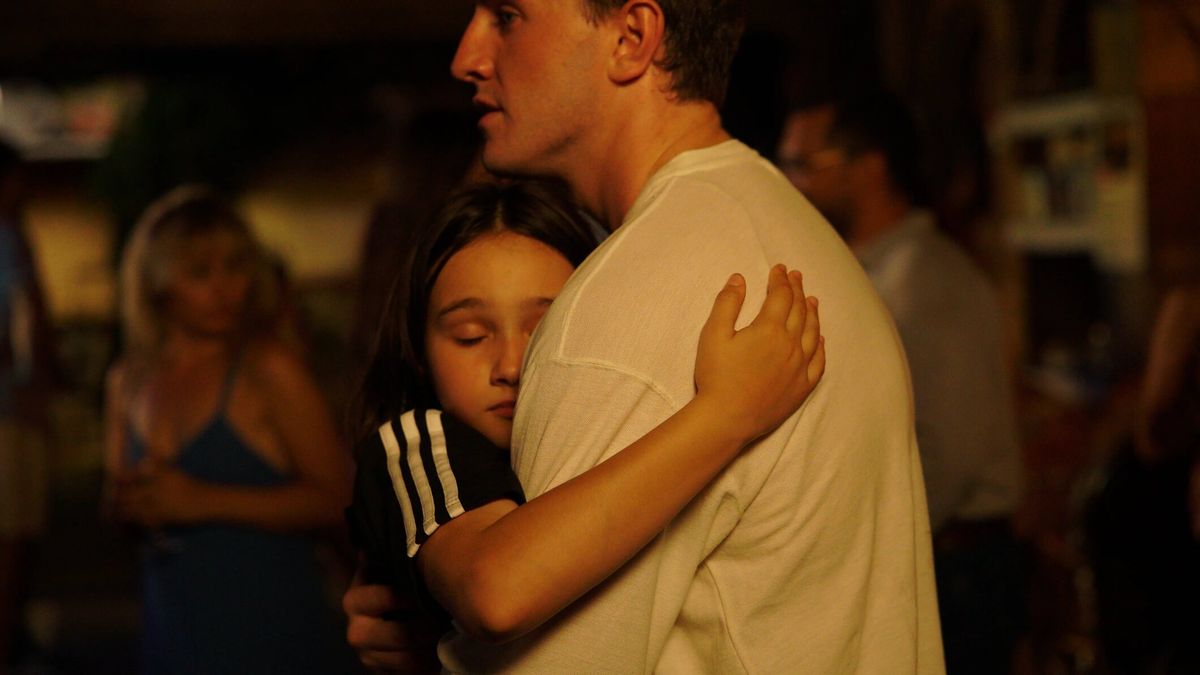
It’s a strange thing, coming back to your own life. I just spent a week disconnected from everything except family stuff, and now I’m expected to just pick up where I left off? That seems unfair, especially when it feels like I’m re-learning how to move in the world. Everything’s where I left it; why should this be so difficult?
Anyhow, my father’s still gone and I’m still nowhere near okay with that. Which makes it doubly difficult to write about the two movies I promised I was going to review this week – each of which is, in its own way, about an unwanted parting.
I’ll start with Charlotte Wells’ Aftersun, since the more time I spend thinking about it the more I believe it might be the best thing I’ve seen all year.
Aftersun is a tiny, deeply felt story about a young father and his tween daughter spending a restless week at a resort in Turkey, sometime in the 1990s judging by the vintage of the camcorder they carry around. Or maybe it’s a little later, and the camcorder is old; the father, Calum, clearly values it.
His daughter Sophie is not nearly as reverent of it, though she does enjoy recording him; she’s a little bit of a performer, clearly heading for a life in the arts, and she keeps trying to catch him in an unprepared moment. The thing is, Calum’s life is nothing but unprepared moments; he’s so clearly uncomfortable in his own skin, dealing with issues she can’t begin to understand – or hasn’t yet begun to, since we are led to understand that the events of Aftersun are being reviewed and revisited by an older Sophie, who’s shuttling through that camcorder footage for reasons of her own. And over the course of the movie, Wells leads us to understand what it is she’s looking for.
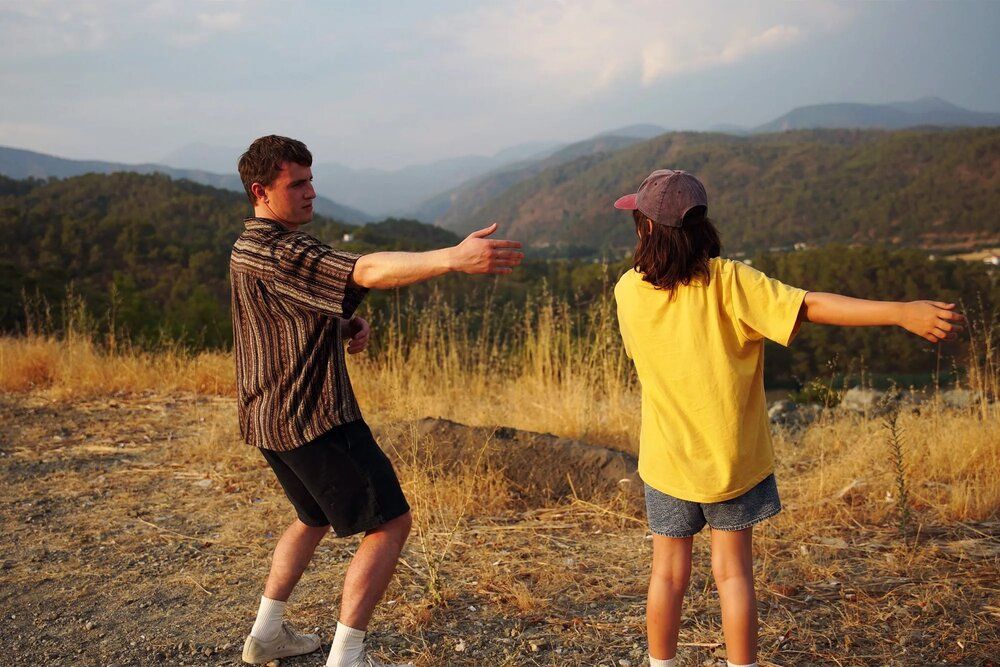
There’s not much of a plot in Aftersun, beyond that: Calum and Sophie do touristy stuff. They go swimming, they visit some mud baths that supposedly hosted Cleopatra once upon a time, they look at rugs that Calum clearly can’t afford but wants to buy anyway. Sophie hangs out with some older kids while Calum drinks in the afternoon – a little too much, it looks like, but maybe not, who knows. Calum is carrying some anger, and it might have something to do with the cast on his arm, but it might not. We get the sense that Calum is angry about a lot of things, but he’s making an effort to make sure Sophie doesn’t have to deal with that side of him. It’s mostly working. Mostly.
And in every scene – in every shot – Wells gives us the perspective her characters lack. Paul Mescal and Frankie Corio are simply perfect as Calum and Sophie, radiating comfort with one another while also suggesting the tension of family members who’ve maybe spent a little too much time apart.
Having not seen Normal People, I only knew Mescal from his supporting role in The Lost Daughter last year; I will now follow him everywhere. Corio is a genuine discovery, unselfconscious in front of the camera in the way the best child actors can be; if she doesn’t go on to a long career in the movies, I hope it's by her choice and no one else’s. They’re brilliant together, playing small moments of loving frustration and bigger moments of confusion and hurt as though this is just the way everyday life is. (The filmmaker Celia Rowson-Hall appears in a handful of shots as an older version of Sophie, in a manner that teases out every nascent personality trait in Corio’s performance.)
There are a lot of first features about parents and children, but Wells gives hers a specificity, and an underlying sadness, that distinguishes Aftersun from the pack. I have thought, more than once, that Wells could be Joanna Hogg’s much younger stepsister; she has the same exacting emotional self-awareness, but an entirely different perspective – and Hogg’s own contribution to 2022, The Eternal Daughter, does feel like a strange companion piece to Wells’ debut.
And speaking of children sorting through memories of their parents: At my father’s funeral I told a story about the day I truly understood him: It was a beautiful weekend afternoon in early summer – in the mid-to-late 90s, as it happens – and he picked me up from the subway in his beloved 1967 Camaro, driving along the highway to his house. Simon & Garfunkel’s “Cecilia” was on the radio, and when we realized we were both quietly singing along we raised our voices and sang together; it was the only time I heard him sing. The song ended, and moments later the car ran out of gas; we coasted off the highway and I ended up pushing it the last few hundred yards to the station while he steered.
When I was done, I returned to my family – who all told me he had a habit of overestimating how much gas was left in the tank, and got caught out a couple of times a year. This was just the one time it happened when I was in the car; it’s still a pretty great memory.
I won’t be revisiting Aftersun for a while, I don’t think. But I will come back to it, and when I do I’ll know what I’m looking for.
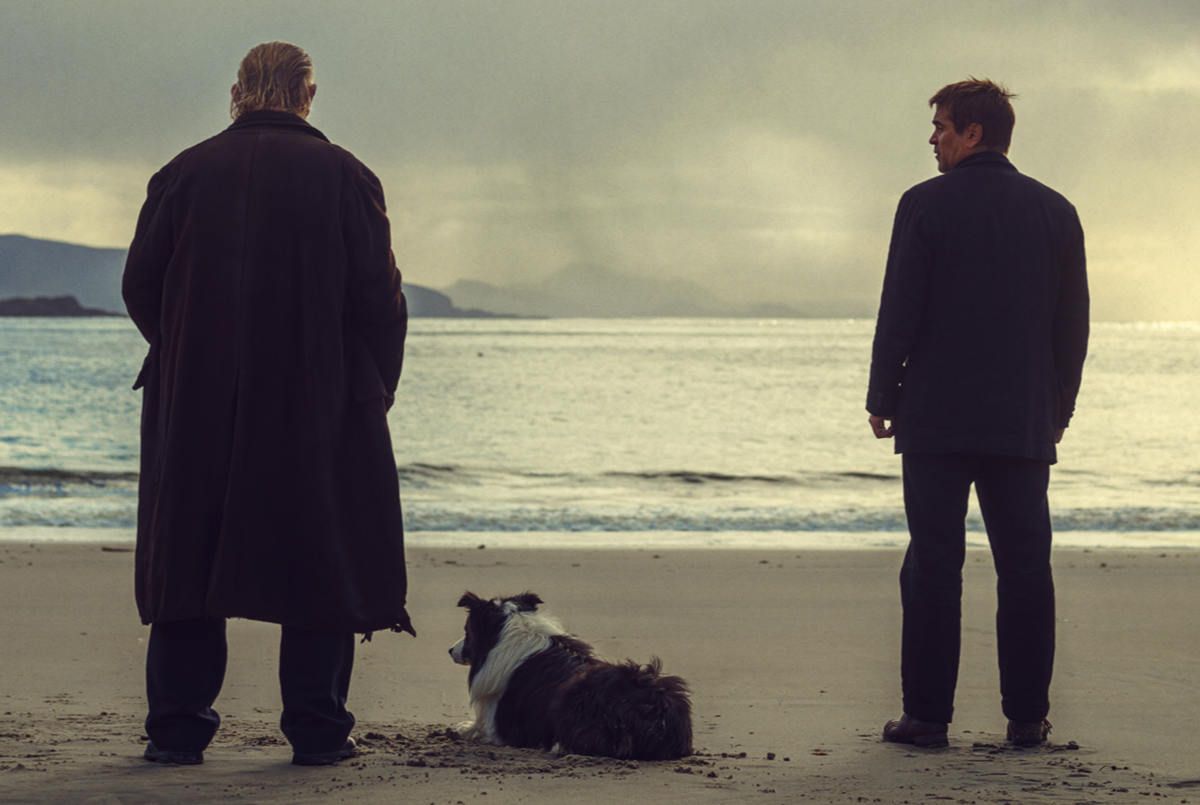
The Banshees of Inisherin is also a tragedy, but as it’s written and directed by Martin McDonagh it’s a considerably lighter one. McDonagh isn’t the only one out there laughing in the darkness, but he’s got a very recognizable laugh, as it were, finding comic angles on the most horrific of notions. In Bruges, Seven Psychopaths and Three Billboards Outside Ebbings, Missouri are all steeped in menace, abuse and murder, their heroes and anti-heroes alike clinging to gallows humor because honestly, what else is there?
“How’s the despair?” someone is asked about midway through The Banshees of Inisherin. “It’s back a bit,” comes the reply, and as understatements go, well. McDonagh’s got the In Bruges band back together for a reunion tour, and as much as I’ve enjoyed Brendan Gleeson and Colin Farrell over the years, I don’t think they’ve ever been as good as they are in this one.
Gleeson is Colm, who’s been living in a little village off the coast of Ireland for his entire life; Farrell is Padraic, his lifelong friend and drinking buddy down at what appears to be the village’s only pub. It’s 1923, and occasionally the sound of gunfire can be heard over on the mainland, but things in Inisherin are pretty calm. And then one morning Colm decides he doesn’t want to drink with Padraic any longer, or even talk to him. He’s just done. This does not sit well with Padraic, who attempts to win Colm back with a charm offensive; Padraic’s sister Siobhan (Kerry Condon) begs him to give Colm some space, but Padraic won’t let up. Things escalate.
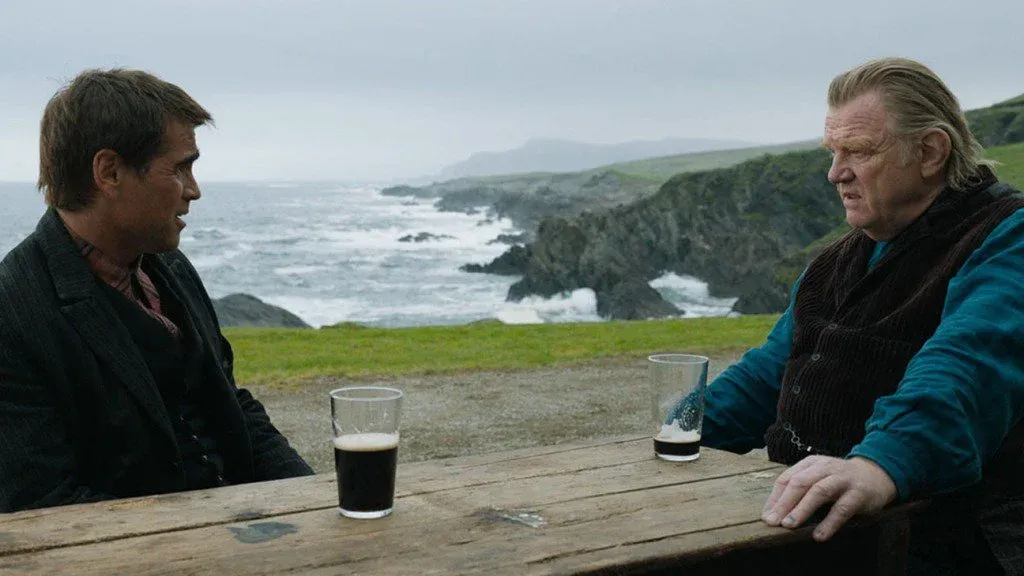
I’m not sure the story really works as an allegory for the Irish Civil War, where people who’ve long lived in friendly harmony suddenly decide they don’t like each other no more, leading to escalating violence and tragedy. (I am obviously oversimplifying centuries of sectarian tension, but in my defense McDonagh did it first.)
But I’m also not sure the allegory is the most important thing here; The Banshees of Inisherin is a movie about the impossibility of having an abstract conversation with a literalist, and on that level it’s both very funny and very sad.
Barry Keoghan is in there too, as an enthusiastic but none-too-bright friend of Padraic’s who’s sweet on Siobhan and similarly incapable of understanding where he’s not wanted; the character is the one piece of McDonagh’s script that feels too stagey, like a metaphor for the metaphor. (I think we’re supposed to believe Padraic is too deep in his own thing to note the irony, but Keoghan is a hair too broad while Farrell simply disappears into Padraic’s wounded dignity; of course the guy wouldn’t see himself in this gesticulating doofus.)
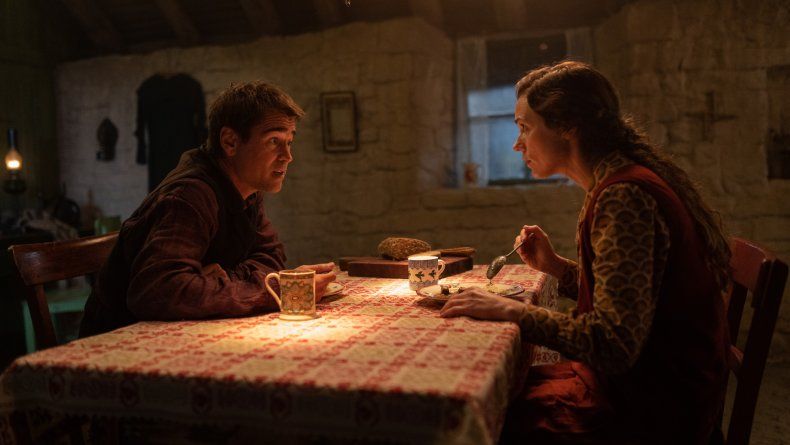
This is the smallest of notes, mind; The Banshees of Inisherin is a masterful study in interpersonal dynamics, and the way the dearest of friends can fail to realize they’ve come to want different things. Gleeson and Farrell are magnificent, as I mentioned, but Condon – whom you might recognize as Mike Ehrmantraut’s exhausted daughter-in-law on Better Call Saul – emerges as the picture’s center of gravity: All of these idiots are trapped with each other, and she’s sick of it – and even sicker of being the sympathetic ear to them. I get it, Siobhan. I get it so much.
In Sunday’s paid edition: I finally review the boxed sets I promised to review two weeks ago! And also Top Gun: Maverick, probably! Upgrade your subscription so you don’t miss out.
